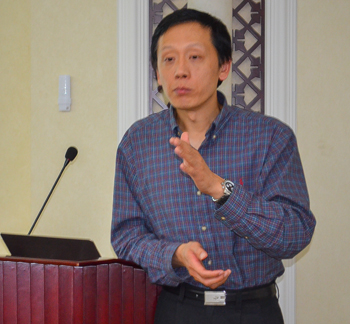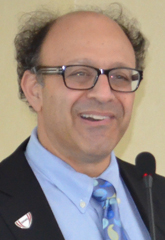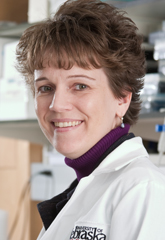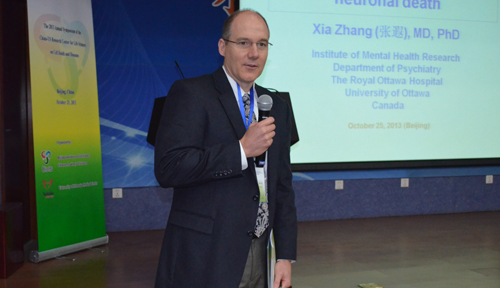BEIJING – It’s all about communication.
That’s how relationships grow.
For UNMC and its partner institutions in China, it’s easy to see that the bonds are strengthening.
This year, UNMC sent over four of its top researchers — Ken Bayles, Ph.D., Howard Fox, M.D., Ph.D., Tammy Kielian, Ph.D., and Xu Luo, Ph.D. — to spearhead research symposia in Shanghai and Beijing centered on cell death.
 |
Xu Luo, Ph.D. |
“With any relationship it’s important that we continue the conversation,” said Dr. Bayles, associate vice chancellor for basic science research. “You need to do more than send emails. If we’re serious, we need to have face-to-face interactions.”
It’s easy to see the camaraderie building. In Beijing, a dinner with UNMC and CAS researchers turned into one toast after another. The room was buzzing. Old friendships were renewed. New ones were established.
It’s a win-win for both sides.
 |  |
Howard Fox, M.D., Ph.D. | Tammy Kielian, Ph.D. |
At the same time, China has much to offer with tremendous economic resources devoted to research as well as incredible scientific manpower as the most populous country in the world.
“We need to keep recruiting talented people,” said Dr. Fox, senior associate dean for research in the College of Medicine. “It’s important for us to let people know about the great work being done at UNMC and the opportunities that exist for training and collaboration.”
For Dr. Luo, who grew up in Beijing, the visit was “an opportunity to get reconnected with China.”
An associate professor in the Eppley Cancer Institute, Dr. Luo already employs two Ph.D. students from China courtesy of UNMC’s partnership with the prestigious Chinese Scholarship Council (CSC).
Dr. Kielian, professor of pathology/microbiology, likewise counts a CSC student among her key lab personnel.
“It begins a cycle,” Dr. Kielian said. “We help train these students, then they go back to China and establish their careers and serve as a bridge to strengthen our existing collaboration.”
Although cell death was the theme of the research symposia, the UNMC-China research partnership is very much alive and well.
